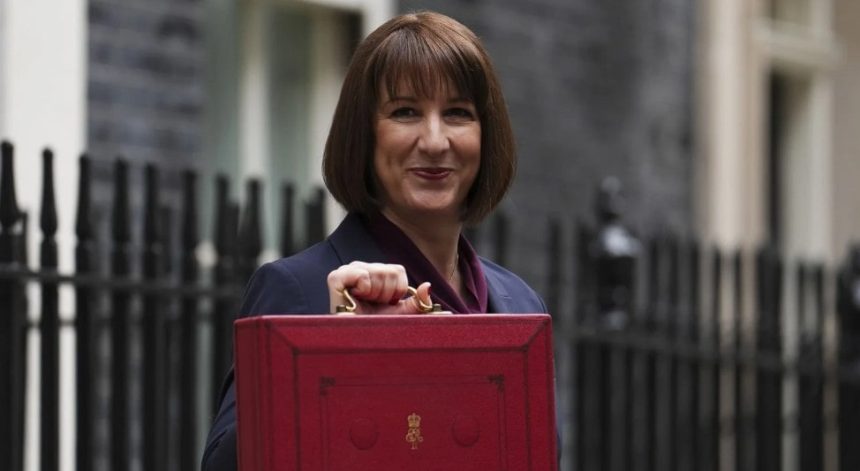Rachel Reeves’ £2 Million Mansion Tax Sparks Debate: What It Could Mean for Homeowners and the Housing Market
Chancellor Rachel Reeves is reportedly weighing up a bold move ahead of November’s Budget, a “mansion tax” on luxury homes worth over £2 million.
The proposal, revealed by the Mail on Sunday, would see property owners charged 1% annually on the value exceeding £2 million.
For the Government, it’s a possible answer to the UK’s widening fiscal gap. For homeowners, it’s a potential game-changer.
The Treasury’s books are under pressure. In September alone, public borrowing hit £20.2 billion, the highest figure for that month in five years.
Overall borrowing for the first half of the fiscal year is close to £100 billion, far beyond the Office for Budget Responsibility’s forecasts.
It’s no wonder Reeves is hunting for fresh revenue. But this new mansion tax has ignited a fierce debate — and for good reason.
How might it work?
Around 160,000 homes in the UK are worth £2 million or more, according to data from Zoopla — that’s less than 1% of the housing stock.
Under the plan, a property worth £3 million would attract a £10,000 annual levy, while a £5 million home could see owners paying £30,000 every year.
However, homes under £2 million would remain untouched.
Property expert and buying agent Henry Sherwood didn’t mince words: “This is not a wealth tax; it is an attack on anyone who has worked hard to be successful.
Between £2m and £3m in many areas of London buys a fairly standard Victorian terraced house, so it is hardly targeting the rich and wealthy.
These are people who have performed at school, been to University, got good jobs and worked on their careers.
Equally, it affects entrepreneurs and business owners, who took a different route, and shouldered huge risks to get where they are.”
The ripple effect on buyers and sellers
Mortgage experts warn this could shake confidence in Britain’s already fragile housing market.
Pete Mugleston, managing director at Online Mortgage Advisor, said: “This is essentially a wealth tax in disguise. Once you start taxing wealth, there’s nothing to stop future governments from going further.
A 1 per cent levy on a £5 million home could mean an annual £30,000 bill, which is hardly trivial. It’s impractical, costly to enforce, and risks driving wealth, investment, and talent out of the country at a time when Britain needs to attract it.”
The Chancellor’s wider tax plans, which could see £2 billion raised from middle-class professionals, have already fuelled speculation over how far future fiscal tightening might go.
Similar measures have been discussed in Rachel Reeves’ plans for a £2bn tax on middle-class professionals, highlighting the growing focus on property and personal wealth.
How much money could it actually raise?
If implemented, the scheme could generate between £2 billion and £3 billion a year, not insignificant, but still a fraction of what’s needed to fill the fiscal hole.
Interestingly, a similar idea featured in the Liberal Democrats’ 2010 election manifesto but failed to gain traction. Market activity has slowed. According to Zoopla, buyers are nervous, delaying decisions until after the Budget.
The high-end market, in particular, has been hit hard. Estate agent Savills reports that country homes worth over £2 million have fallen by 8.1% in value over the past year.
Frances McDonald, director of research at Savills, explained: “Over the past year, country and coastal markets have been challenged with ongoing concerns around council tax reform, and now face fresh speculation around additional taxation, placing downward pressure on pricing.
The market, particularly above £3 million, is adjusting to a smaller pool of active and committed buyers.”
Mark Harris, chief executive at SPF Private Clients, described the ongoing uncertainty as a “handbrake” for potential movers.
Older homeowners caught in the crossfire
Critics argue the mansion tax could hit retirees the hardest, people whose homes have risen in value over decades but whose incomes haven’t.
Jeremy Leaf, a veteran estate agent, said: “A fair proportion of those asset-rich, cash-poor older people may feel forced to move at a time when it doesn’t suit them and may be distressing or difficult to do.”
Amy Reynolds, head of sales at Richmond agency Antony Roberts, added: “In areas such as East Sheen and Richmond, £2 million doesn’t necessarily buy a mansion – it buys an ordinary family home.
A so-called ‘mansion tax’ would unfairly penalize people who are property-rich but cash-poor. Many long-term owners here have simply benefited from rising property values over decades, not from high incomes.
An annual charge based on property value rather than income would hit retired homeowners and families already stretched by high living costs, and could even force some to sell their homes just to pay the bill.”
Enforcing such a policy could prove a bureaucratic nightmare. Louis Mason, communications director at Oportfolio Mortgages, warned: “The UK doesn’t have a system for valuing homes at scale, so disputes would be inevitable.
In the short term it could dampen high-end transactions and deter international buyers, though over time prices would likely settle at levels reflecting the ongoing tax burden.”
Meanwhile, Eamonn Prendergast of Palantir Financial Planning said it could easily backfire: “Valuations would be contentious and costly to enforce, especially for homes hovering near the threshold.
Rather than raising stable long-term revenue, this could undermine confidence in the UK property market and discourage investment at a time when growth and stability are needed most.”
Rumors swirl around several possible property tax overhauls. Reeves may explore replacing stamp duty with an annual tax on homes worth over £500,000, or introducing a new capital gains levy on properties sold for more than £1.5 million.
Landlords, too, could face an additional squeeze.
Whatever Reeves announces on 26 November, one thing is certain: the housing market — particularly at the top end — is bracing itself.






